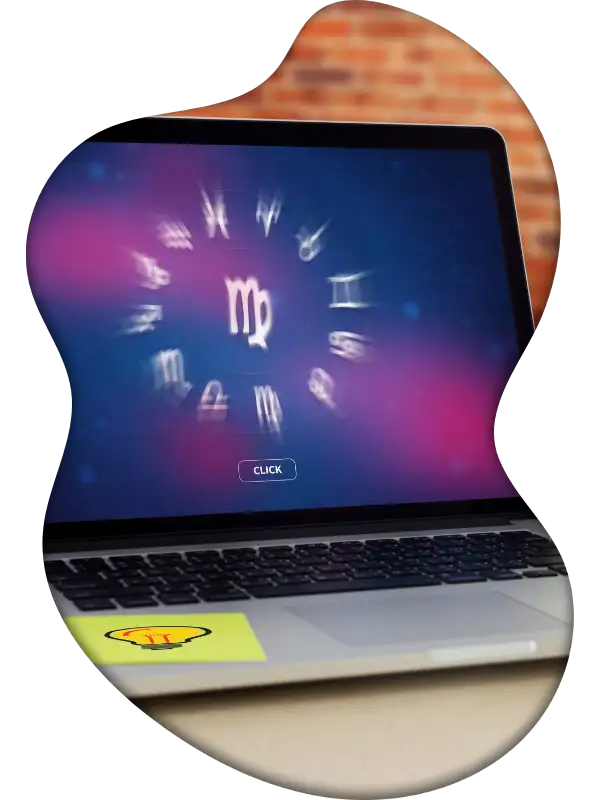In the core of horary astrology, the following techniques are used:
- Signification techiques
- Essential dignities
- Accidental strength/weakness of the planet
- Receptions
- Close aspects of the planets
- Exact aspects of the planets
The astrologer chooses the necessary techniques for analysis in advance according to the algorithm for assessing a horary chart.
Below is a classification of these basic techniques:
[toc]
Signification Techniques
The planets that show phenomena, states, objects, people, or other living beings are called significators.
Usually, in any question, one requires to consider 2-3 significators and their interactions.
For comparison, in natal astrology, the significator of life can be at the same time:
- Ascendant
- Planet in 1st house
- Planet - ruler of the 1st house
- Dispositor of the ruler of the 1st house
The second significator, say, the significator of death, can be at the same time:
- 8th lord planet or its aspect or its antis
- Planet within the 8th house or its aspect/antis
- In rare cases - the dispositor of the ruler of the 8th house
Therefore, evaluating all possible combinations of planetary pairs and highlighting the most significant ones is necessary to find death in the natal chart. And then, one needs to confirm by extra techniques that chosen combination of planets will bring the event with the maximum probability at a particular moment.
In horary astrology, everything is more straightforward. There is one planet for death and one for life. And these two planets have only one interaction which points to the end. And there are no other options.
Note. In horary astrology, only one planet shows a particular object within the current situation. This rule rigidly determines the meaning significator and makes horary astrology an extremely concise and straightforward predictive discipline.
The general hierarchy of techniques for signifying external objects in horary astrology is as follows:
House Rulership
Astrological houses describe almost all objects, phenomena, people, and living beings. Therefore, we almost always use the technique of house rulers to select a significator.
However, some phenomena are not described by any of the houses. For these cases, we use one of two techniques::
For example, there is no house for the wind, but the planet Mercury describes it. Similarly, there is no astrological space for the operation, but either Mars or the dispositor of the Part of Surgery describes it.
Note. Sometimes, the horary chart suggests an unexpected significator or blocks the use of the most expected one. In this case, the techniques "reviewing the chart in a new context" and "locking the significator" are applied.
Any of these techniques solves the main problem - matching a specific object, phenomenon, or living being with a single planet.
Clarification techniques
Sometimes there is a task to clarify certain information about an object. For example:
- find out the height of a person to separate the husband from the lover
- describe the appearance of the missing item,
- clarify the circumstances of an event that had already occurred (for example, the moment when lightning struck)
- etc.
For this, we use one of two clarifying signification techniques.
- Inheritance of character properties and
- Conjunction with fixed stars
Querent and Quesited
The object whose future we predict is called quesited, the subject of the question. For example, a girl asks about the feelings of a young man. However, when evaluating the chart's radicality, the astrologer sees that the chart highlights the planet denoting the young man's property. So, despite the formally voiced question about feelings, the girl's sincere interest lies in obtaining the property of a young man through marriage. Thus, the apartment will be the quesited.
The person asking the question is called querent. In our example, the girl is the querent. The apartment is the main subject of the question, the quesited. A young man, marriage, and the feelings voiced in the query are a tool for achieving the goal - of getting an apartment, but not the main subject.
Note. In practice, there are quite often situations when a person does not voice the true question. However, the astrologer can still find the quesited (the true subject of the question) using the radicality assessment techniques.
The Essential dignity of the Planet in the Sign
The significator has an important qualitative characteristic - an essential dignity/debility. The state of a planet indicates how "good" (full of merit) or "bad" (flawed) the significator is.
If the planet is debilitated, then the thing corresponding to it
- bad or
- feels unwell or
- harms others.
Examples:
- an unreliable partner,
- a boring book, a lousy job,
- a dangerous deal, a sick brother, etc.
The context of the question determines which adjective we use to describe the negative quality of the object. For example, if the question is about the amount of salary, then the debilitated significator will show a low wage. On the other hand, if the question is about the regularity of payments, then we are talking about an irregular salary.
On the contrary, if the planet is in a noble state, then the corresponding object
- good (in the context of the situation), or
- feels good, or
- supportive.
[promoFreeCourse]
The State of Objects
Below are examples of the manifestation of the significator's dignity or imperfection, which shows whether a thing is good or bad in the context of the question.
| Question | Debilitated Significator | Dignified Significator |
|---|---|---|
| What will be the route to work (with or without traffic jams)? | The route will be heavy (full of traffic) | It will be an easy trip (no traffic jams) |
| What will this coat be like (will it keep you warm in winter)? | The coat will be of poor quality (it will not warm you) | It will be good (it will keep you warm) |
Important note. In real life, the client asks a question about the object's state in terms of context - "Will there be traffic jams" or "Will this coat keep warm in winter". Your task as an astrologer is to immediately understand that the quality of the quesited is under consideration. Then, you apply the technique of essential dignity, and provide the answer in terms of the final context - "yes, there will be traffic jams", or "the coat will keep warm".
The Well-Being of People and Animals
The essence of the planets shows the state of animated objects.
| Question | Debilitated Significator | Dignified Significator |
|---|---|---|
| How does the relative feel (is he starving)? | He feels terrible (hungry) | He is in excellent condition (and happy) |
| How will my mom's health be this month? | Mom will feel good (healthy) | Mom will feel bad (get sick) |
Important note. The astrologer answers here in the form of a contextual description. For example - "will the lost puppy freeze"? Answer: "no, it will be warm."
Harmful/Helpful Nature of the Object
Finally, the essential state shows the harmfulness or helpfulness of the object in the context of the situation.
| Debilitated Significator | Dignified Significator | |
|---|---|---|
| Will this job be dangerous? | The job will be harmful (dangerous) | The position will be helpful (on the contrary, it will save you from danger) |
| How will this employee perform? | He will spoil the project (sales will drop with his arrival) | He will help (increase sales) |
| How will this paint perform? | Paint will damage (corrode the surface) | Paint will help (protect the surface) |
Important note. It is essential to understand the context of the question. If in the question "is it worth applying paint," the client means its protective properties, and the astrologer - the aesthetics of the coloring - embarrassment may occur. Let's say an astrologer sees that the color significator is neutral. The astrologer concludes that the coloring, at least, will stay in the overall design. One can safely apply it - it will not spoil the picture. However, the client had in mind the protective properties. A paint in a neutral state is a paint that is not able to protect against corrosion. As a result, the forecast will be fundamentally wrong. From this arises the danger of questions that begin with the words "Is it worth...." or "Should I..."
The planetary state allows you to assess an external thing's quality quickly.
Accidental Strengthening of the Significator
In addition to the qualitative characteristic, the significator has the power of action. This power can be either inherited (a strong chess player) or given by external circumstances (the house has an external force to be sold, i.e., occasions - overheated demand for places in the area, good location, etc. - help sales). The degree of strength is called accidental strengthening of the planet.
The word "accidental" means "related to external factors." For example,
- The person is not exceptionally erudite by nature or even speaks with a stutter. Still, as far as chess is concerned, he is a strong grandmaster in this particular game, as he has gained "external, accidental" experience of playing chess through years of practice.
- The house naturally does not have its forces to do anything. But in the specific circumstances of the overheated demand for real estate in the area, the house takes on the "external, accidental" power of being sold.
The stronger the significator, the more external circumstances will help the corresponding thing to do good or evil according to its essence. Conversely, the weaker the significator, the more circumstances constrain/interfere with the object's potential to act.
Example:
- The significator of the coronavirus turned out to be accidentally strengthened. The long incubation period and delayed reaction provide great "support" to the virus. External circumstances increase the speed of spread.
- In the question of the sale, the significator of the house turned out to be accidentally weak. The housing market collapsed, demand fell, and the house became illiquid. External circumstances blocked the sale.
Note. Please make sure to distinguish the strength/weakness of the planet and its essential dignity. For example, the significator of a house may be dignified but accidentally weakened. The house for sale is beautiful. But when the market stagnates, even the best house becomes illiquid. There is nothing good about coronavirus, but it can be powerful.
The technique of determining the strength/weakness of the significator allows you to assess the presence of external circumstances that supports or suppress the object's power.
Receptions
This technique determines the type of relationship between significators. Planets can:
- Obey each other;
- Help/harm each other;
- Love (desire)/hate (avoid) each other.
The same mutual relationship occurs between external objects in the context of the question.
For example:
- A person is in the power of sickness and cannot get out of bed (the significator of the patient is in the power of the significator of the disease);
- The chief is secretly in love with a subordinate (the significator of the chief loves the significator of the subordinate);
- Vitamins facilitate conception (the significator of the drug helps the significator of pregnancy);
- Paint erodes the surface (the paint's significator harms the significator of the surface).
Note. Please note that the paint can harm the surface due to its bad state (poor quality) or due to reception to a specific planet (an incompatibility of this particular paint with this wooden surface)
Exact aspects
As the planets move around the zodiac circle, the angular distance between them constantly changes.
Definition. Aspect is the exact angular distance that forms between two moving planets on the zodiac circle for a moment.
There are the following types of aspects.
- aspect of 60º - sextile,
- aspect of 90º - quadrature,
- aspect of 120º - trigon,
- aspect of 180º is opposition and
- aspect of 180º by antiscia — countrantis.
- aspect of 0º bodily conjunction.
- aspect of 0º by antiscia — conjunction by antiscia.
Aspects between significators cause events - the contact of external objects with each other.
For example, in the question: will Bob pick up the parcel today before 15-00,
- significator of Bob forms an exact aspect with the signifier of the parcel: yes, he will
- the significator of Bob does not form an aspect: no, he will not
Exact aspects also determine the timing of future events.
For example, in the question "when I get married", the significator of the girl and the future husband perform an aspect in 17.5º. The meeting will take place in 17.5 weeks.
For comparison, in natal astrology, dates are determined by much more complex techniques:
- First, according to the primary directions, the year of the event with the maximum potential of the significator and promittor is selected.
- Then, by specifying techniques (for example, revolutions and quarters-chart), a specific month of the event is defined
- Then, by transits, the final date is examined.
As you can see, what takes hours or days in natal astrology takes minutes in horary astrology.
Close Aspects
When the angular distance between significators is close to the exact aspect, then such an angle is called close aspect.
The presence or absence of close aspects between significators indicates the presence or absence of
- long-term influence from someone/something or
- constant contacts/long-term connection between objects
For example:
| Question | Astrological Indicators | Meaning |
|---|---|---|
| Will my mother interfere in my relationship? | Mother's significator has no close aspects with daughter's significator | No, mom will not influence this relationship |
| What prevents a business from growing? | The planet of business closely aspects the planet of advertising. At the same time, the significator of advertising damages the business by reception | Business is heavily dependent on advertising. At the same time, advertising harms the business. That is, the reason is the wrong marketing strategy |
Note. A close aspect indicates only the presence or absence of a lasting influence or relationship. The reception determines the nature of relationships between people, objects, and phenomena.
[promoFreeCourse]


